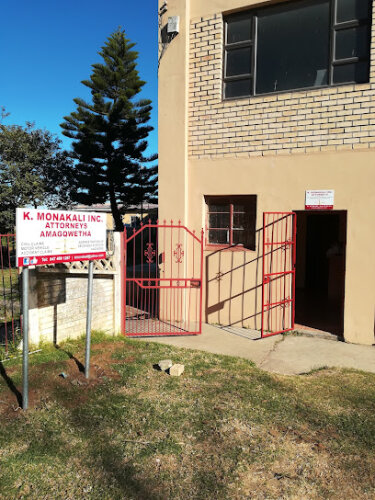Best Child Custody Lawyers in South Africa
Share your needs with us, get contacted by law firms.
Free. Takes 2 min.
Free Guide to Hiring a Family Lawyer
Or refine your search by selecting a city:
List of the best lawyers in South Africa
South Africa Child Custody Legal Questions answered by Lawyers
Browse our 2 legal questions about Child Custody in South Africa and read the lawyer answers, or ask your own questions for free.
- Legal Gaurdianship Appointment
- I have a child who's been living with me for 3 months now. Social services have been at the child's house after school, reported/ logged a Form 22/23. Parents are struggling to take care of her and have agreed to appoint us as guardians for her. What do we need... Read more →
-
Lawyer answer by GAVEL & GREY LEGAL PRACTITIONERS
You will need the court approval on the legal guardianship.
Read full answer - Can a mother keep a caring father away from his child
- Can my mother of my child keep my child away from me
-
Lawyer answer by Attorneys
She cannot keep your child away from you unless there are valid reasons such as abuse.
Read full answer
About Child Custody Law in South Africa
Child custody in South Africa is governed by both the Children’s Act 38 of 2005 and Section 28 of the South African Constitution. These laws focus on the best interests of the child as the paramount consideration in all custody-related decisions. The term "custody" can refer to both legal custody, which pertains to decision-making power over a child's life, and physical custody, which relates to where the child lives.
The legal system in South Africa recognizes two main types of custody arrangements: sole custody and joint custody. Sole custody means one parent has the primary decision-making responsibilities and physical care, whereas joint custody involves both parents sharing in these duties.
Why You May Need a Lawyer
There are several situations where seeking legal advice or representation in a child custody matter can be highly beneficial:
- Complex Cases: If your custody case involves intricate situations such as international relocation, a history of domestic violence, or disputes over child support, a lawyer can provide detailed guidance and representation.
- Legal Documentation: Drafting custody agreements or changing existing orders requires legal knowledge to ensure agreements are binding.
- Negotiation and Mediation: Lawyers can support peaceable negotiations and protect your rights in mediation sessions to seek amicable resolutions.
- Court Representation: If your custody matter goes to court, professional legal representation can be crucial to presenting your case effectively.
- Protection of Rights: An attorney can inform and protect your legal rights throughout the custodial process.
Local Laws Overview
Understanding the local legal framework is essential for navigating child custody cases in South Africa:
- The Best Interests of the Child: This is the utmost standard; every decision should prioritize the child's well-being.
- Parental Responsibilities and Rights: The Children’s Act outlines that both parents should share equal responsibilities and rights unless a court order states otherwise.
- Primary Caregiver Principle: Courts often consider the bond between the child and the primary caregiver when determining custody.
- Co-operative Parenting: Parents are encouraged to enter into parenting plans that focus on the child's needs and structure shared parental responsibilities.
- Mediation Requirements: Before proceeding to court, parties may be required to attempt mediation to resolve disputes amicably.
Frequently Asked Questions
What is the primary consideration in child custody decisions?
The primary consideration is the best interests of the child, which takes precedence over all other factors in custody decisions.
Can both parents have custody in South Africa?
Yes, both parents can have joint custody, which involves sharing day-to-day responsibilities and decision-making for the child.
What is a parenting plan?
A parenting plan is a written agreement outlining how parents will share responsibilities and make decisions about their children's lives post-separation.
How can a custody agreement be changed?
Custody agreements can be altered if there is a significant change in circumstances. The process typically involves applying to the court for a modification.
Do grandparents have custody rights?
Grandparents do not have automatic custody rights but can apply for a court order to obtain such rights if it is in the best interests of the child.
What role does mediation play in child custody disputes?
Mediation helps facilitate discussions between parents to reach mutually agreeable solutions without the need for court intervention.
Is legal representation necessary in custody cases?
While not mandatory, legal representation can help effectively navigate complex legal processes and ensure your rights and interests are protected.
What happens if one parent wants to relocate with the child?
The relocating parent must seek consent from the other parent or obtain a court order demonstrating that the move serves the child's best interests.
How does domestic violence affect custody decisions?
Courts take domestic violence very seriously, and such history can significantly influence custody decisions to protect the child's safety and welfare.
Can a child express their preference in custody cases?
Depending on their age and maturity, a child's preference may be considered by the court, but it is not the sole determining factor.
Additional Resources
For further assistance, you may contact the following bodies:
- Family Advocates: They provide guidance and assistance in family law matters including custody disputes.
- Children’s Courts: They specialize in matters involving children and can be approached for custody disputes.
- Legal Aid South Africa: They offer free legal assistance to those who qualify and need help in child custody cases.
- Domestic Violence Helplines: They provide support and can connect individuals with necessary resources in cases where custody and abuse intersect.
Next Steps
If you find yourself in a child custody dispute in South Africa, consider taking the following steps:
- Consult a Lawyer: Seek professional legal advice to better understand your rights and responsibilities.
- Document Everything: Keep detailed records of all interactions, agreements, and communications related to custody.
- Consider Mediation: This can be an effective way to resolve disputes outside of court and is often a required initial step.
- File Court Applications: If necessary, apply to the appropriate court for a custody determination.
- Focus on the Child’s Needs: Ensure that every decision and action taken aligns with the best interests of the child.
Lawzana helps you find the best lawyers and law firms in South Africa through a curated and pre-screened list of qualified legal professionals. Our platform offers rankings and detailed profiles of attorneys and law firms, allowing you to compare based on practice areas, including Child Custody, experience, and client feedback.
Each profile includes a description of the firm's areas of practice, client reviews, team members and partners, year of establishment, spoken languages, office locations, contact information, social media presence, and any published articles or resources. Most firms on our platform speak English and are experienced in both local and international legal matters.
Get a quote from top-rated law firms in South Africa — quickly, securely, and without unnecessary hassle.
Disclaimer:
The information provided on this page is for general informational purposes only and does not constitute legal advice. While we strive to ensure the accuracy and relevance of the content, legal information may change over time, and interpretations of the law can vary. You should always consult with a qualified legal professional for advice specific to your situation.
We disclaim all liability for actions taken or not taken based on the content of this page. If you believe any information is incorrect or outdated, please contact us, and we will review and update it where appropriate.
Browse child custody law firms by city in South Africa
Refine your search by selecting a city.
















